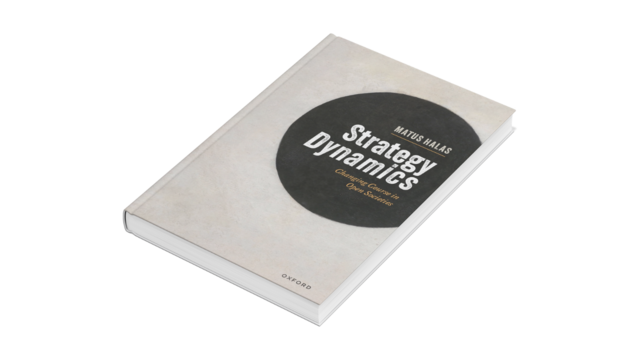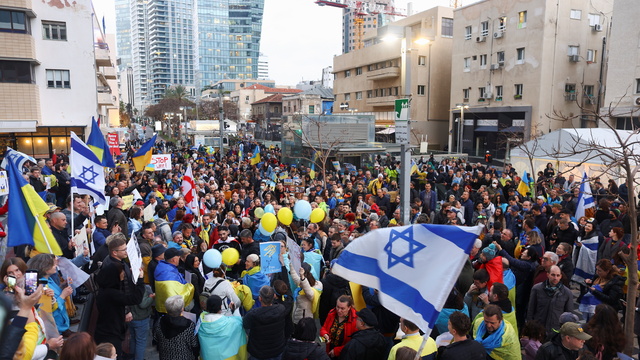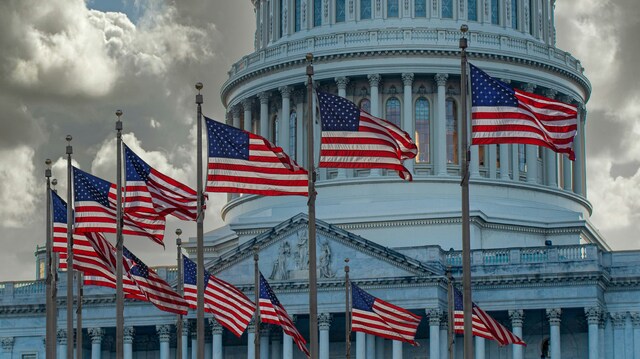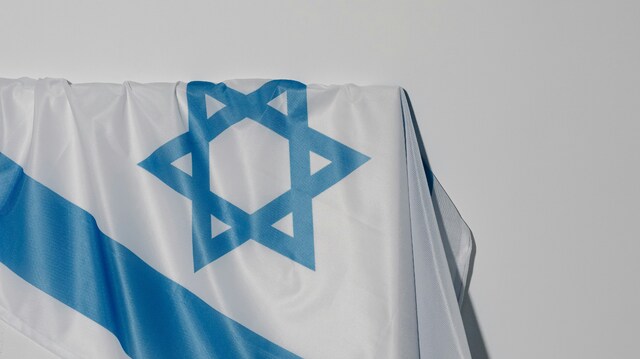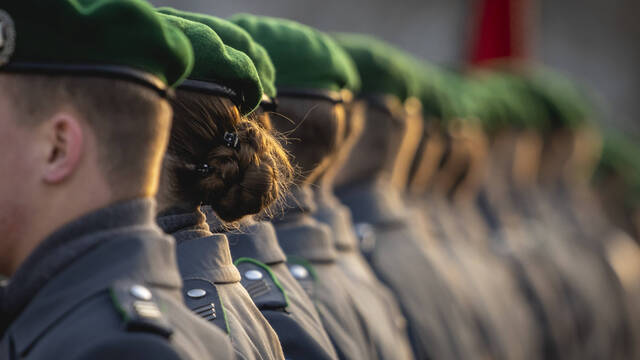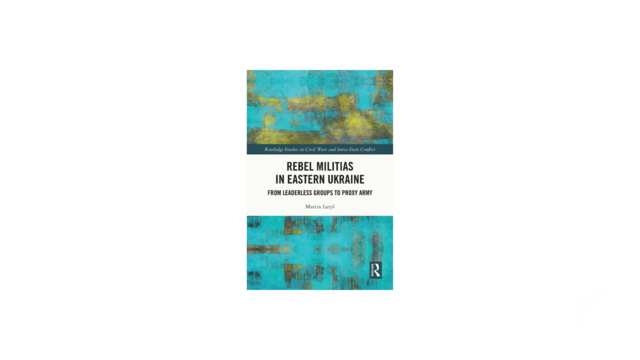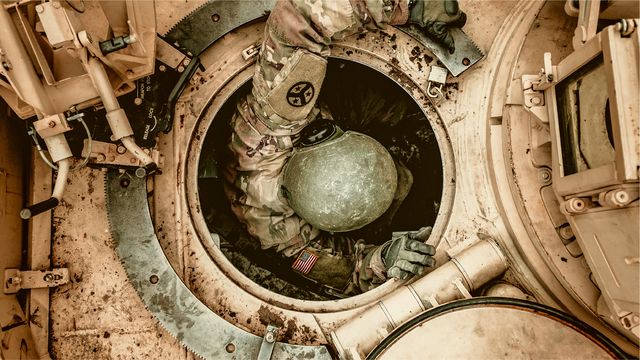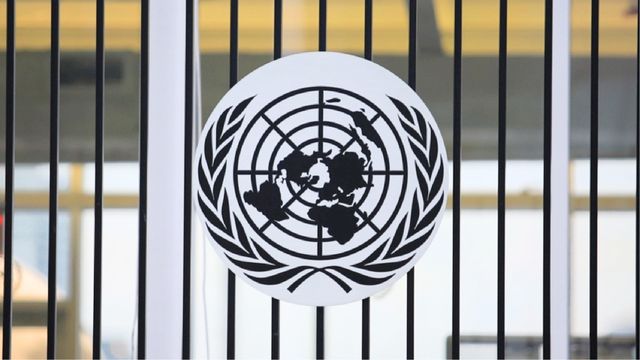What future for Peace? The changing nature of democratic governance and the military organization.

Vincent Bernard, the editor in chief of the International Review of the Red Cross (ICRC), has recently written the ‘world seems to be entering a period of selfishness, of one-sided power grabs and of rallying around murderous identities.’ This post considers what hope there is for peace
The UN System
The United Nations Charter (1945) sets forth in its preamble its raison d’être as saving ‘succeeding generations from the scourge of war, which twice in our lifetime has brought untold sorrow to mankind, and […] to practice tolerance and live together in peace with one another as good neighbours’. The reality that since 1945 the world has experienced more than 250 major conflicts, with many more than 100 million casualties, shows that these aims have been largely aspirational. While the nature of conflicts has changed since the end of the Cold War, with the focus turning to internal state conflicts rather than international conflicts, there have been at least three major international wars in recent times. In addition, we see a challenge to the concept of the nation state, key to the system of containment of violence in the international arena, with the rise of non-state actors such as armed groups supporting ideologies and commercial private military and security companies (PMSC) operating in some of the prior domains of state militaries. The fragmentation within states through differentiating ethnic and religious populations, and the existence of failed states, present challenges to the universal system and attempts such as the Geneva Conventions to constrain aspects of conflict.
The ICRC global survey ‘People on War’, provides the clearest evidence of individual views on the topic. The survey of more than 17,000 participants from 16 states was conducted in June and September 2016. Key findings supported some intuitive indicators, for example, that around half of the respondents from within states experiencing conflict supported the Geneva Conventions in their curtailment of war, compared to about one-third of non-conflict zone respondents. IHL broadly, was supported with four-fifths of the respondents against attacks on hospitals, ambulances and healthcare workers; three quarters supported accountability for atrocities using international courts, and two-thirds considered respect for IHL would be likely to decrease the numbers seeking refuge in another state. Encouraging was that two out of three respondents believed that wars should have limits. However, less encouraging for human rights was an increasing support for the use of torture, with one in three respondents seeing it as acceptable to torture an enemy.
These realisations emphasise the great importance of human rights, the strengthening of democracies and the ‘rule of law’, as the Council of Europe’s Third Summit Warsaw Declaration in May 2005 declared:
We are convinced that effective democracy and good governance at all levels are essential for preventing conflicts, promoting stability, facilitating economic and social progress, and hence for creating sustainable communities where people want to live and work, now and in the future. This can only be achieved through the active involvement of citizens and civil society. Member states must therefore maintain and develop effective, transparent and accountable democratic institutions, responsive to the needs and aspirations of all.
Democracy
While democracy is not new in the sense that states have historically exercised democratic beliefs, the phenomenon of democratic government is a markedly twentieth-century development. The hallmark of democracy is that the wishes of the majority of citizens prevail through the opportunity to exercise their vote at regular free and fair elections. Inherent in this is the right to express different views, to debate and to question. The liberal notion of freedom from interference by the state is implicit. However, with the borderline between public and private fragmented, the role of the state has become “masked by a diversity of players whose accountability is unclear” (Taylor, 1995). The role of the ‘citizen’ in relation to the state has been replaced by that of the ‘consumer’ in interaction with the marketplace. Procedural rights replace substantive justice and access by citizens to the political process becomes alienated and removed, explaining why many have disengaged from politics. Realpolitik, unfortunately, has learnt how to pay lip service to democratic ideals while simultaneously undermining liberal institutions and liberal democratic values. This can feed nationalistic interests praying on xenophobic human tendencies.
The 2000 Warsaw Declaration, ‘Toward a Community of Democracies’, confirmed that there are two key principles of democracy:
that the legislature be duly elected and transparent and accountable to the people; and
that civilian, democratic control over the military be established and preserved.
A key question arising from this is how these two entirely different systems – the military and the civilian, each with inherently different values: the military honouring hierarchical command obedience and civilian-led democracies honouring individual equality and free expression, can work together. Lasswell’s (1941) garrison state prediction of the decline of democratic institutional practices and a move to more dictatorial decision making, utilising plebiscites and referendums (e.g. Brexit, Erdoğan’s Turkey referendum) over elections, may hold some renewed vigour, when as Bernard claims, wealthy states accept the idea of continual war in ever more militarised states. The risk to democracies is this invasion can create perversions of the ideal of democracy that continue to claim the name and facade of a democracy.
The Military
Military organisations have existed since long before democratic governments. The military organisation has, over the centuries, coupled in a symbiotic or parasitic relationship with many different political forms, from republics through to dictatorships, often with the military supporting its host. The risk that the military might sometimes overtake the host if not kept in appropriate check is ever present, and today there are reasons to be concerned in many democratic states that military powers are exceeding accepted bounds. The principle of the civil-military relationship is intended to avoid this happening.
The civil-military relationship in a democracy requires that the civilian arms of government, namely, the executive, legislature and judiciary, have the upper hand, addressing the need to keep the military under control, so it does not endanger the democratic state, but at the same time permitting the state to use it as a defence. In democratic governments, the military organisation is located in the executive arm as part of the executive’s ultimate tool of enforcement.
Samuel Huntington a political scientist from the US in 1957, espoused a view of military conservatism, which held that military personnel are more reluctant to enter into conflict than their civilian counterparts. For Huntington, the dominant concern was to support a strong military capable of defending the nation. This required that the more conservative values of the officer corps, as specialists in the use of violence, receive greater support for their separate professional ethic over more liberal civilian values. Huntington’s thesis ignores military personnel outside the officer corps and the new PMSC and therefore does not address the discipline and accountability of soldiers or PMSC as a site for civilian control of those skilled in the use of violence. Public and private domains become disintegrated, introducing diverse participants leading to indeterminate transparency and accountability undermining the democratic state framework for peace.
Huntington’s largely unsupported assertions still find backing in today’s rhetoric. Yet a civil society moving to the military values of obedience is more likely to produce the outcomes we see in garrison states – building walls, promoting sameness over diversity and rigidity over free thinking. Repetition and propaganda ceremonialise uniform responses in a world where fear is the standard and the focus on terror drives the expansion of demand for military and security expertise. Ways and means to help overcome fellow humans suffering from environmental upheaval, poverty and civil war in their own states retreat; instead the elite security advisors propose what only their skill remit can offer – a combination of isolation and walls for protection, together with more weapons and armaments, to maintain the fighting ‘over there.’ President Trump’s announcements follow this prediction exactly. He has pursued wall building, his isolationism talks of putting Americans first, and retreats from a globalised interdependent world, whilst also engaging in military assertiveness outside the state borders. He takes funding from the State Department programs for aid and support of UN activities and increases the military budget by 10% or $54 billion, enabling pursuit of aggressive activities beyond the protective border walls.
This bleak picture exists alongside research that has long supported the need for civilian control to deter the military’s preference for the use of force. A study by Todd Sechser asked ‘Are Soldiers Less War-Prone than Statesmen?’ and found that strong civilian control over the military resulted in less resort to conflict, whereas weak civilian control resulted in more aggressive states. The comprehensive quantitative study using statistical analysis spanning regime types covered 1,550 possible dyads between 1947 and 1992, showing that where militaries are left in control they are more likely than not to resort to conflict, due to the desire for prestige, glory and opportunity to demand increased expenditure for military purposes. Sechser concluded that ‘civilian control of the military is not merely a means to promote democracy, but it is also a force in favor of peace’. If studies like Sechser’s are to be taken seriously, a key to universal peace is supporting rather than undermining democratic states, with strong civilian control held by civilians, not ex-military or security personnel.
This notion is supported by Benjamin Fordham’s study that found where the executive has access to greater military capabilities, it is more likely than not to use force as an option. Thus the military machinery’s presence, including access to the wider private military and security companies, fuels the resort to war over alternatives such as dialogue and sanctions. We seemingly forget the lessons of history. Lord Randolph Churchill, father of Winston Churchill, confirmed this reality in his resignation letter in 1886: ‘Foreign policy and free expenditure upon armaments act and react upon one another…The possession of a very sharp sword offers temptation, which becomes irresistible, to demonstrate the efficiency of the weapon in a practical manner.’ The Fordham study also found support for states being more likely to resort to conflict when the economy is performing poorly and unemployment is high (for example, the US and the Second World War). Eisenhower, another significant statesman, linked the danger of the military wing when aligned with the growing industrial complex as partners, warning, as he left office, of the need to continually guard against the military industrial complex:
We must never let the weight of this combination endanger our liberties or democratic processes. We should take nothing for granted. Only an alert and knowledgeable citizenry can compel the proper meshing of the huge industrial and military machinery of defense with our peaceful methods and goals, so that security and liberty may prosper together.
Lasswell – the garrison state
A blurring of the military – civilian boundary leads to the problems we face today of an expanded militaristic influence within democracies. Lasswell warned of the decline from the dominance of the bargaining business type to powerful specialists and technicians of violence. David Kennedy also has flagged the need to remind ourselves why this must not occur:
it cannot be wise for a democracy to let such an important function grow so far removed from popular participation and accountability. It makes some extremely important things too easy – like dealing out death and destruction to others, and seeking military solutions on the assumption they will be swifter and more cheaply bought than what could be accomplished by the more vexatious business of diplomacy.
Now, however, there is a new breed of militarisation, labelled by some a ‘Revolution in Military Affairs’. A vision of Andrew Marshall, a Cold War warrior coming out of the nuclear intelligentsia, this Revolution in Military Affairs requires the expenditure of billions of dollars to ensure cutting edge military hardware and technology is available to fight wars far from the battlefield, through altered strategic and organisational changes. This change is well underway in the military forces of Western democracies and has major implications for the future of a peaceful world, presenting many challenges for the received civil-military relationship. Arquilla and Rondfeldt, over 20 years ago were forewarning the move from the industrial to the technological would bring with it:
… revolutionary forces consist[ing] increasingly of widespread multi-organisational networks that have no particular national identity, claim to arise from civil society, and include aggressive groups and individuals who are keenly adept at using advanced technologies for communications, as well as munitions.
In 1941 Lasswell pointed out that there did not exist then examples of military states in combination with modern technology, but he foretold of the difference between temporary expansions of military power in times of emergency and the permanence of accepting a garrison state. Lasswell saw the combination of the military with technological advances arising out of the industrial period bringing social disruption and pressures placing the society in an amygdala like state of fear, creating the fight or flight syndrome that threaten the rationality of political processes. The ever-present threat of violence lends itself to the prediction by Lasswell of a corresponding rise in the military elite with declining freedom for citizens, as the pervading fear of terror attacks become the dominate concern of society. Lasswell predicted the endgame of these events to be the placing of power in the hands of the few, leading to totalitarian governmental power.
Prevailing war and changing methods
As Bernard observes, war is chameleon-like in its adaptability and has a capacity for camouflaging itself within the grandiloquence of political, national security and international relations. The Revolution in Military Affairs and advances in technology are a world away from the Second World War, fought with the whole of the society participating in the war effort. The basis on which that war was fought and the nature of the civilian conscripted soldier is described by Rousseau as part of his idea of the Social Contract as early as 1762: ‘War is not a relation between man and man, but between state and state, and individuals are enemies only accidentally, not as men nor even as citizens, but as soldiers; not as members of their country, but as defenders.’ This, however, no longer remains in advanced democracies that employ professional volunteer military personnel and PMSCs comprised of a diverse mix of nationals.
The transformed operation of military systems with billion-dollar budgets supporting transnational military-industrialtechnology complexes must result in changes to the democratic state. Such budgetary issues alone give considerable reason for concern. However, technology is advancing so rapidly it provides a changing landscape, allowing for cheap and illusive methods of violence to filter through all domains. No longer are wars declared and fought on defined battlefields. Technological advances create new pervasive and boundless war fronts, including cyberspace itself. Holiday resorts become battle fields and the threat of violence is brought to everyone’s door step. This leads to a polarization in attitudes between fight (conflict) or flight (isolationism). Another possibility, often overlooked, is assertion in which understanding and cooperation can work towards achieving a resolution through dialogue and diplomacy.
Growth in privatisation of activities that once were the sole domain of the national military, now including going as far as attributing combat roles to corporations that operate transnationally, and have links throughout the military industrialtechnological complex, has increased apace. Such methods of warfare place greater risk on civilians, diminishing the heroic status and ideal of the soldier placing their body on the line. This development points to a further removal from public scrutiny and therefore government accountability of military activity. The omnipotent position of states is impacted when conflict is a growth industry for corporations who often engage retired military officers. These factors in turn not only dissipate the specialisation of skills in violence but lead to a drain on national militaries that are experiencing difficulties in recruiting.
Lessons from the demise of the Roman Empire when it followed this path cannot be ignored. At its peak the Roman army was composed of citizen-soldiers. However, the invasions and civil wars of the third century led to Rome’s reliance on foreign troops. The transformed legion of barbarian troops arose from overblown ambition and misguided goals that failed to see the dangers of the loss of civilian control over the military. This reliance on foreign fighters led to disarray and internal loss of authority, contributing to that empire’s downfall. Today Western democratic states’ military complexes become further removed from the citizen and democratic controls that exist for good reason. This is not only through the process of privatisation, but also by the voluntary nature of joining the military profession. The idea of introducing a foreign fighting force in Syria and the use of post-conflict private military personnel in regions like Afghanistan are just some of the more concerning trends.
Comte, influential for Lasswell, considered society cycled through military, feudal and industrial stages. With privatisation of militaries this finds a return to warlord-style feudalism, with a twist: this time the feudal domains will be run by corporate interests rather than individuals. David Kennedy has been passionate in expressing the consequences of this change:
Some will find it offensive to call today’s armed forces a ‘mercenary army,’ but our troops are emphatically not the kind of citizen-soldiers that we fielded two generations ago – drawn from all ranks of society without respect to background or privilege or education, and mobilized on such a scale that civilian society’s deep and durable consent to the resort to arms was absolutely necessary.
The significance of maintaining a healthy civil-military relationship required for a democracy is becoming more disjointed, with grave consequences possible. From the seventeenth century and the development of the Westphalia system, states moved to control militaries and the resort to force through uniting all states in an attempt to avoid unilateral state decisions to go to war. This came to rely on the citizen-soldier, accountable through their government to the whole of the society they represented, and not profiting from the prolonging of any conflict. This is very different from the examples seen developing today where large corporations profit from war, including the manufacture of fighting technologies through to providing combat actors in war zones. The citizen often no longer has to engage in considering the risks to their children as soldiers in joining a conflict.
Not only are the democratic Western states that have participated in these wars carrying a massive financial burden (for the US alone, according to Joseph Stiglitz a three trillion dollar war, there has been unhappiness expressed by the voting public as demonstrated by the changing fortunes of political leaders, and an array of allegations of inappropriate actions through to torturous conduct by governing members of these states and their military. This downward spiral saw the United States resorting to arming and training so-called moderate fighting forces to participate in the Syrian war. At the same time democratic states such as Australia have legislated to prevent their citizens from joining enemy organisations, such as ISIL, as foreign fighters. These ongoing presentations of crisis can profoundly change the organisational form of societies.
War or peace?
What is the answer to the question posed by Bernard – is the grand design of developing a ‘universal law’ to contain violence failing? We can certainly see many threats and obstacles to this ideal. Where we have a perpetual threat be it terrorism, environmental degradation, scarce resources, or growing populations all pushing society to be on a constant state of alert, this lends itself to a militarisation of the civilian as the specialists in security are called on. The opportunity for the control of the use of force and a world of reduced conflict rapidly diminishes under these threats. This in turn leads to a transformation in the operation and tone of democratic institutions and governments. The rise of democratic states in the twentieth century and the long undertaking to control war, starting with the Westphalia system, may well be undone.
However, it is encouraging that a countering force exists in this unpredictable world of an enhanced call, through the technologically connected international civil community, for greater transparency and accountability. The demand for human rights of the individual, and the values espoused for instance in the international criminal justice system, represent civilian demanded standards. The ICRC global survey on war supports, that when doing business in a globalised world, these values of democracy and human rights are recognised. Even Lasswell held hope that cooperative efforts such as those progressed by the UN system, and now others such as the work of the European Union, would bring greater unity and effective cooperation for peaceful societies.
There is clear evidence that the military is a changing organisation and does not operate upon the same principles as the past. The notion of the separate entity of the military, with very different values from the civilian domain, does not sit easily within democracies, thereby creating an inherent tension. The democratic notion of debate and transparency with majority rule under the law is not respected by the necessities of the military in battle, where instantaneous decisions call for obedient compliance. As Kennedy argues, the cloak of the law gives war a respectability that enables democracies to continue this odd parasitic relationship with the military, but possibly ultimately at the hosts’ cost, as new methods such as use of PMSCs and new technologies change the face of violence. Civilian awareness of these risk factors is required if peace is to prevail.
